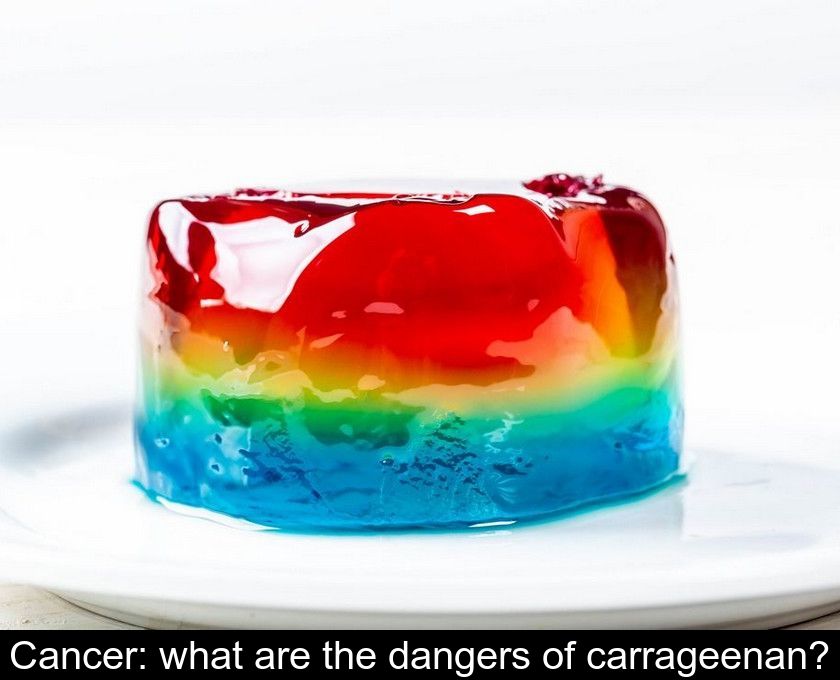Cancer: What Are The Dangers Of Carrageenan?
Carrageenans, also known as E407, are very common food additives in industrial dishes and desserts. As they are extracted from algae, they have long been considered harmless. But it is now known that this is not the case. We will explain to you the dangers of carrageenans and their ability to promote certain cancers.
What are carrageenans?
Carrageenans are widely used food additives in the agri-food industry as texture agents. These additives, also known as E407, are ubiquitous in processed dishes and desserts for their gelling and emulsifying properties.
They are extracted from red marine algae harvested off the coasts of Brittany and South America: carrageen.
After harvesting, the algae undergo various chemical processes to extract the gelling agent. This substance is then dried and powdered for use as an additive by the agri-food industry.
Where can we find carrageenans?
From a dietary point of view, carrageenans are polysaccharides that have no nutritional value and have no taste.
However, they are very useful for thickening desserts, industrial flans, yogurts, ice creams, plant-based milks, and chocolate milks. They make desserts creamier and more substantial, but their presence in food is not limited to sweet products. The additive E407 can also be found in prepared dishes such as chicken cordon bleu or lasagnas...
According to the figures from the Open Food Facts database, nearly 7000 food products contain this additive, including some organic labeled products. Indeed, this texturizing agent is among the 51 food additives allowed in organic products.
What are the health risks of carrageenans?
A few years ago, carrageenans were considered completely harmless to health.
But scientists have discovered that, under certain temperature and acidity conditions, these molecules can degrade into compounds with lower molecular weight that can cross the intestinal barrier. By increasing intestinal permeability, these additives can cause various inflammatory conditions.
Animal studies have shown a link between the consumption of this additive and the development of inflammation and ulcers in the colon. That is why the International Agency for Research on Cancer (IARC) has classified degraded carrageenans as "potentially carcinogenic to humans".
Furthermore, other scientific studies have proven that these additives promote insulin resistance and contribute to the development of type 2 diabetes.
Currently, the E407 additive is still permitted in food as long as it does not exceed a concentration of 5%. The European Food Safety Authority (EFSA) has set an acceptable daily intake of 75 mg per kilogram of body weight.
In a reassessment report from 2018, the EFSA expressed concerns about not having a means to determine the content of degraded carrageenans in manufactured food products. These additives are present in a wide range of foods, and storage conditions could lead to their degradation.
Therefore, as a precaution, it is advisable to limit consumption of products containing the E407 additive. If you are diabetic or have intestinal disorders or cases of colon cancer in your family, it is even recommended to completely eliminate this additive from your diet.









